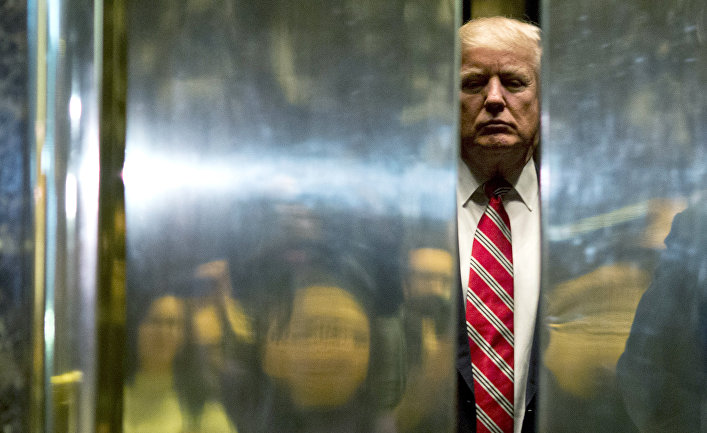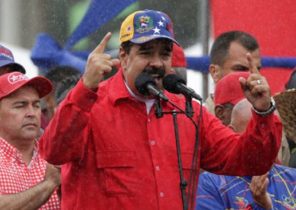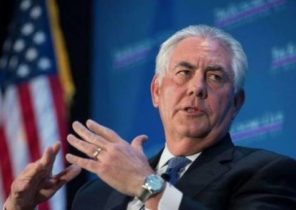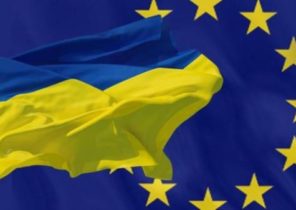
The world capital of political forecasts, Washington remains in the dark about the intentions of the new government of the United States — Latin America, in particular, turned into a black hole, to escape from which not even rumors.
Only Mexico and Cuba float on the surface of the swamp of irrelevance into which plunged the region, which many see clear signs of distancing, which in coming years will be to characterize the relationship of the White house with its southern neighbors.
Judging by some hints about the priorities of the government of Donald trump in North and South America, the number one issue for him is Mexico. Country “blame immigration and trade — the two key themes for the victory trump — and he is likely to act quickly so that the situation can change,” says Peter Schechter (Schechter, Peter), Director, Centre for studies in Latin America the name Adrian Arsht at the Atlantic Council in Washington.
“We’re going back to the time when the policy in relation to Latin America is seen through the inner prism.”
In addition to the famous border wall, which promised to build a trump, in the first year of his presidency, he must revise the NAFTA Treaty, which for 25 years has linked the economy of the United States, Mexico and Canada and actually determine the progress South of the Rio Grande.
It is not known what damage is in store for the world outside of Twitter, because of NAFTA and relations with Mexico are of great importance for the economy of the United States: the trade flow daily crossing the Rio Grande, estimated at $ 1.5 billion (4.8 billion reais).
Meanwhile, the top echelons of the Obama administration in private conversations with anxiety recognize that the “demonization” of Mexico dictates the tone in relations with Latin Americans in General. The first victims will be the countries in Central America, particularly Honduras, Guatemala and El Salvador, the main “exporters” of immigrants in the United States.
Brian darling (Brian Darling), consultant, conservative, and a former adviser to Republican Senator Rand Paul (Rand Paul), who was a rival trump in the primaries in 2016, does not see here any serious risks.
“As President, trump begins to fulfill its duties without prejudice, leaving aside the rhetoric of his campaign. He really needs to renegotiate NAFTA in the first year of his tenure, but he encourages deals. And have already demonstrated a willingness to meet with the President of Mexico to cooperate with it,” he says.
Cuba is also preparing for the consequences of the arrival of the trump. Those are not many individuals who are engaged in Latin America on the transition team for the national security Council and State Department, most of them are hard-core opponents of Castro.
According to senior officials who left their posts last week, Cuba was also the Central theme of the questions that the transition team trump asked Obama’s staff at the State Department.
On condition of anonymity, they reported that their successors “look at the island from a business perspective: want to know what benefit it brought Cuba diplomatic rapprochement. Isolationism for them — virtue.”
Twitter President confirms his government taken the course. “If Cuba is not willing to offer something better for the Cubans, Cuban Americans and the United States as a whole, I will end with this agreement,” trump wrote on his Twitter page a few days after the election, referring to a new relationship, which intends to establish with Havana.
The uncompromising rhetoric leads to the fact that Cuba — with a population of only 11 million people — again takes on a disproportionate importance to American foreign policy.
And, as in the case of Mexico, the effect of a potential collapse of dialogue with Havana will be felt far beyond the island.
Softening restrictions on entry and opening an Embassy in Havana, the United States withdrew its relations with the countries of Latin America from the old ideological frameworks that have historically opposed the Yankees the peoples of the region.
Return to the previous understanding of Latin America through the prism of opposition to Cuba may revive the old enmity and to be an obstacle to diplomacy between Washington and the region.
Judging by the interests of the transition team, Venezuela is also under the close supervision of trapistov. It is considered as a time bomb: the split in local government would allow Washington to access a country rich in oil and thirsty foreign aid.
As for the rest of the region — including Brazil — no one expects special attention to her from the White house. Experts in the city agree that the result may be a higher degree of regional integration without the participation of Washington and rapprochement with China.
Andrea Murta Deputy Director of the research Center for Latin America named Adrian Arsht at the Atlantic Council and a former correspondent for Folha in Washington and new York.







